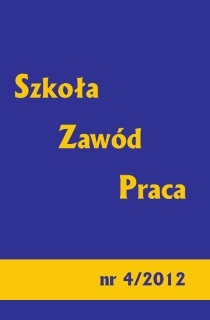Andragogical reflections on the course and results of adult education
DOI:
https://doi.org/10.34767/SZP.2012.02.02Keywords:
lifelong learning, efficiency of adult education, didactics of adult education, professional ambitions, professional developmentAbstract
The content of this article focuses on the problems associated with the concept of lifelong learning, including the characteristics of the following types of learning: cumulative, assimilative, accommodative and transformative. Additional space has been dedicated to the discussion about effectiveness and dealing with difficulties and challenges that may arise during the process of adult education. The process and results of education depend on many different factors interacting among one another in various ways – as well as their interrelationship on the level of individuals, groups and institutions functioning in a given society. The research and studies on the quality of employees’ lives, including perspectives of their further development and education, imply that it could be interesting to analyze their social and professional usefulness. The measurement and evaluation of the effectiveness of adult education should also include its usefulness according to the study comprising professional lives of graduates based on their self-assessment, opinion of employers and professional organizations, observation, knowledge diagnosis, skills, professional attitudes and analyzing work products.

